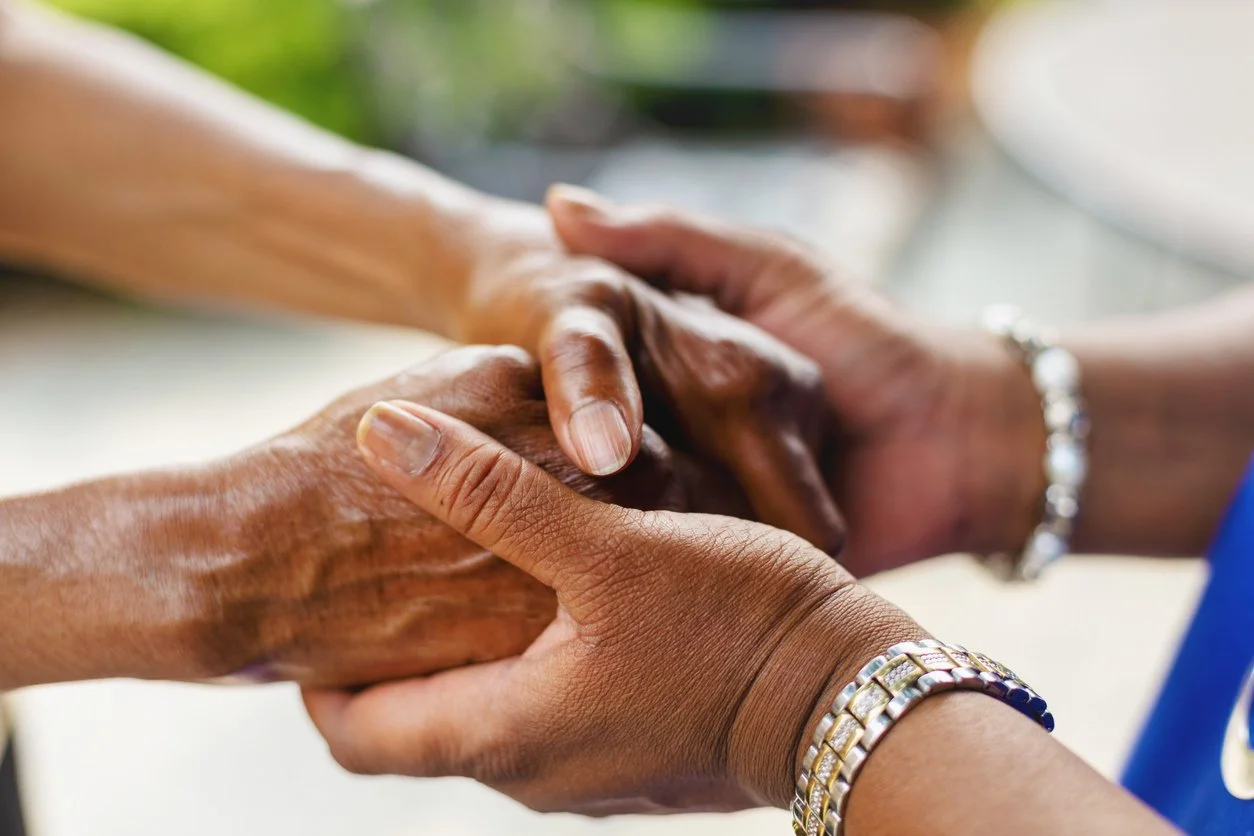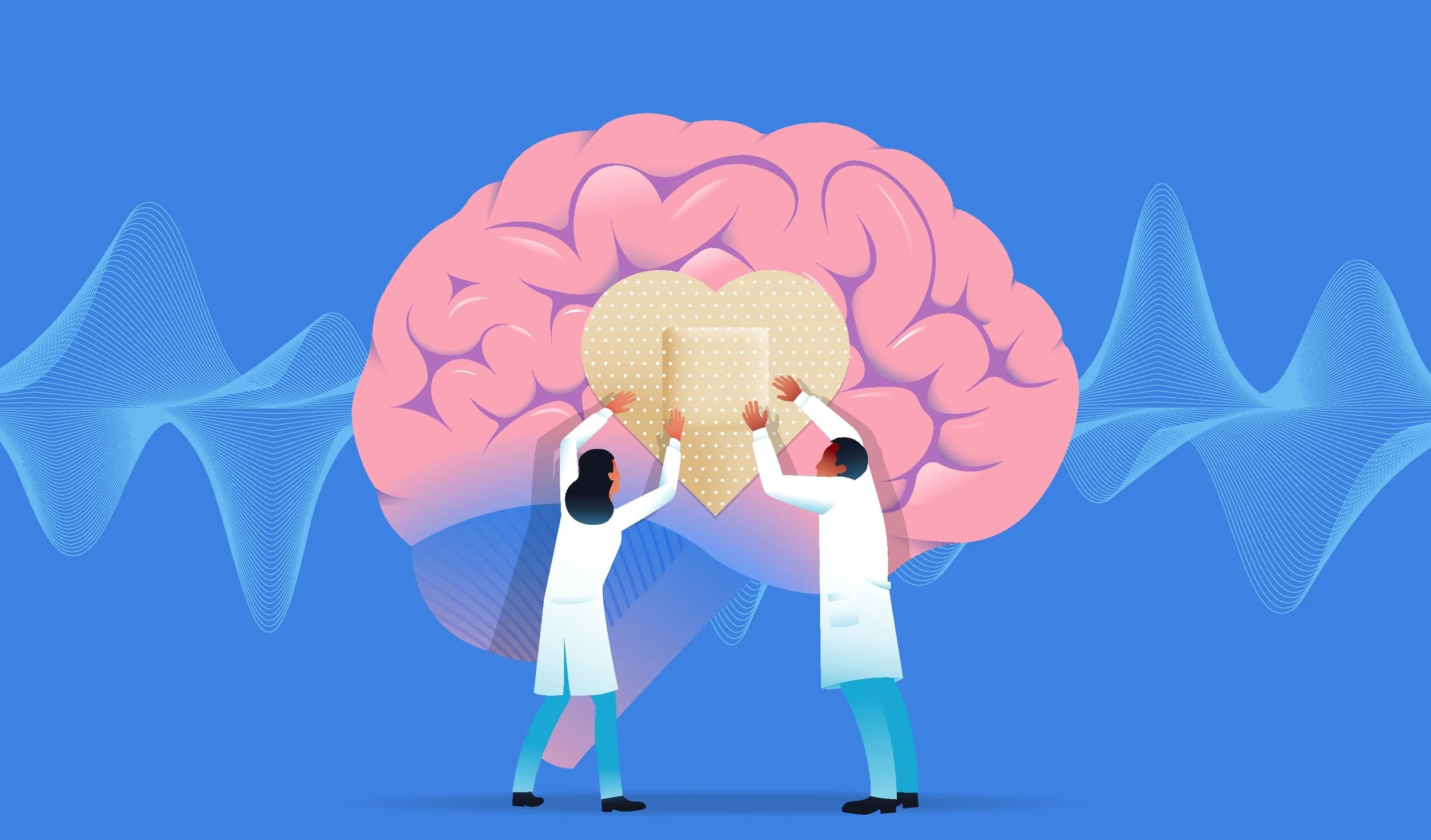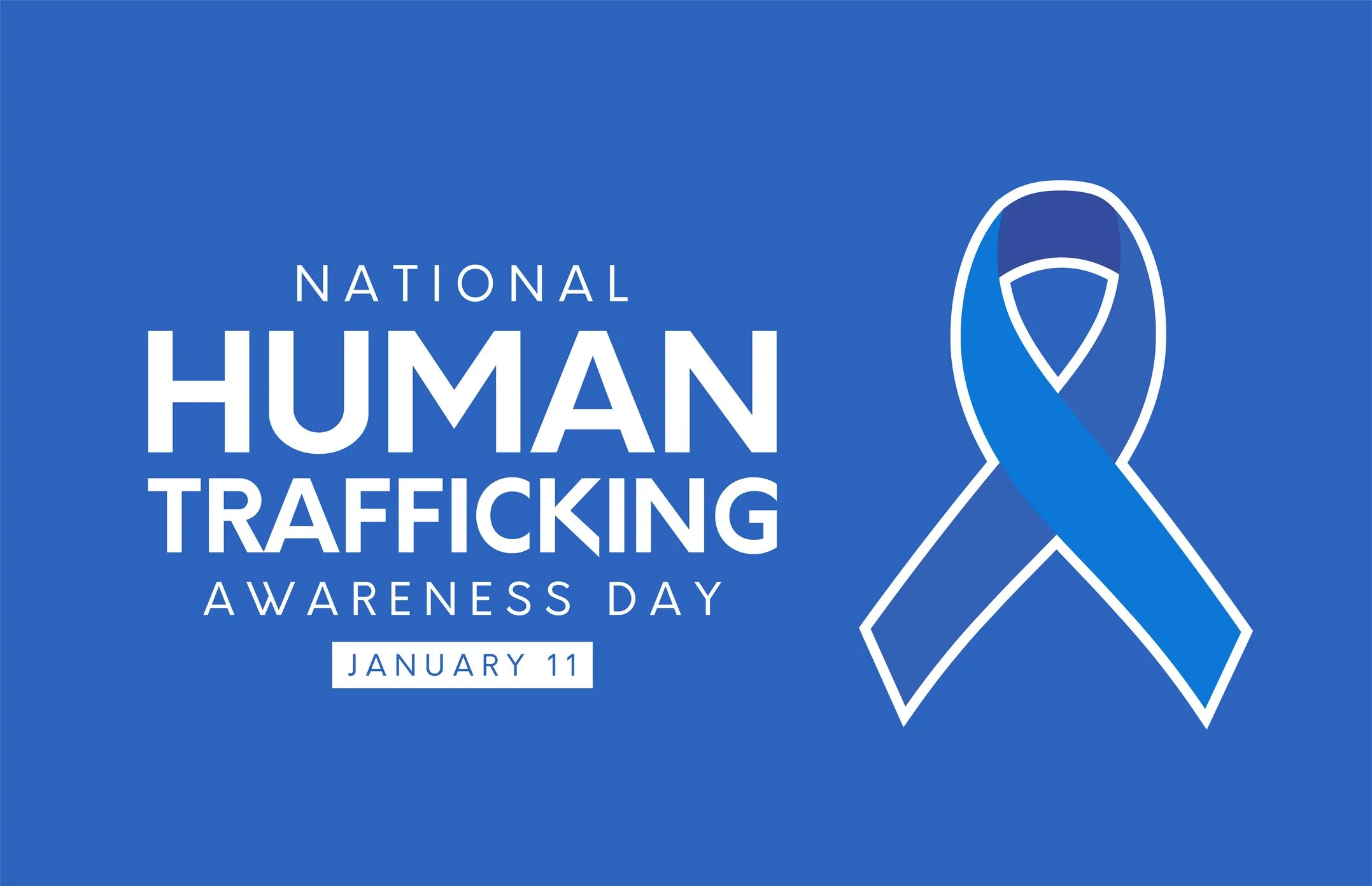
Alleviant Integrated Mental Health Blog
Supporting Black Mental Health: Voices, Visibility, and Healing
Mental health is a fundamental part of wellbeing. For many in the Black community, emotional distress has been misunderstood, minimized, or left without effective support. Supporting Black mental health means listening deeply, honoring lived experience, and expanding access to culturally responsive healing rooted in respect, science, and community strengths. Healing is a human right and essential to overall health.
What Your Nervous System Needs This Winter: A Guide to Regulation
Winter can feel heavier than other seasons. Shorter days, colder temperatures, and the residual stress of the holidays can leave your mind and body feeling off balance. What many people don’t realize is that these feelings are often rooted in your nervous system. How your body responds to stress, cold, and social pressures directly affects your mood, energy, and overall mental health. Understanding and supporting your nervous system can make winter feel less overwhelming and more manageable.
Human Trafficking Awareness Day: Understanding Trauma and the Path to Recovery
January 11 is Human Trafficking Awareness Day. It is a day to honor survivors, educate our communities, and shine a light on an issue that often stays hidden. Human trafficking is not only a violation of safety and freedom. It also leaves deep emotional, psychological, and physical scars that can shape how a person sees the world and themselves long after the event ends.
At Alleviant, we believe healing is possible. The journey is not simple or fast, but with compassionate support, survivors can rebuild a sense of safety, identity, and hope. Understanding how trauma affects the brain and body is an important part of that process.
The Role of Peer Support in Veteran Mental Health Recovery
For many veterans, the transition from military life to civilian life can feel isolating. Even during the holidays, when everyone else seems to be celebrating, veterans may feel disconnected from friends, family, or their communities. Peer support can be a powerful tool to bridge that gap, helping veterans feel seen, understood, and supported.
Peer support isn’t therapy in the traditional sense, but it is a form of connection that can make recovery from depression, anxiety, trauma, or PTSD feel less lonely. It works because it comes from people who have shared similar experiences and understand what it’s like to serve.
Finding Mental Health Support Beyond the VA: Why More Veterans Are Turning to Alleviant
If you’re a veteran, you’ve likely heard it before: “Call the VA.” The VA provides essential services for millions of veterans, but it isn’t the only option for high-quality mental health care. Many veterans and their families don’t realize there are community clinics, private providers, and nonprofit programs designed specifically to help veterans access care faster and with fewer barriers, especially during the holidays when symptoms of depression, anxiety, or PTSD often intensify. The good news is that help is available, and you don’t have to navigate it alone.
At Alleviant, we specialize in helping veterans access compassionate, evidence-based care quickly. We see most patients within 7 days of referral, so you can begin feeling supported right away, not weeks or months later.
Veteran Mental Health and the Holidays: Managing Triggers and Expectations
Thanksgiving is often described as a time for gratitude, family, and celebration. But for many veterans, this season can be complicated. Crowds, noise, and heightened emotions can bring up old memories or feelings that make it hard to relax or enjoy the holiday. If this sounds familiar, you are not alone. Struggling during this season does not mean you are weak. It means you are human and your experiences deserve care and attention.
Substance Use Prevention Starts With Mental Health
Red Ribbon Week is a time to raise awareness about substance use prevention and encourage healthy choices for all ages. While education about drugs and alcohol is important, one of the most effective ways to prevent substance misuse starts with mental health.
At Alleviant Integrated Mental Health, we know that emotional well-being, coping skills, and early support are key to reducing the risk of substance use.
Coping with Trauma Anniversaries in Summer: Signs, Triggers & Support
For some, summer brings warmth, sunshine, and celebration. But for others, it’s a time when old pain resurfaces, sometimes without warning. If you find yourself feeling anxious, heavy, or emotionally distant during the summer months, you may be experiencing the effects of a trauma anniversary.
At Alleviant, we want you to know this is real, and you are not alone. Whether the anniversary is connected to a loss, a traumatic event, or a difficult season of life, your body and mind may hold onto the memory even if you’re not consciously thinking about it.
Understanding what’s happening and how to care for yourself through it can help you move through this season with more compassion and support.
Bridging the Gap: Making Mental Health Care More Accessible for Communities of Color
Mental health struggles don’t discriminate. People from every background, culture, and identity experience anxiety, depression, trauma, and other mental health challenges. But access to compassionate, effective care is not always equal — especially for individuals from minority communities.
July is Minority Mental Health Awareness Month, a time to recognize the unique mental health needs and barriers faced by Black, Indigenous, and people of color (BIPOC), as well as LGBTQ+ individuals and other underrepresented groups. At Alleviant Integrated Mental Health, we believe that healing starts with being seen, heard, and respected — and that means representation matters.
Why Representation Matters in Mental Healthcare
Mental health looks different for everyone, and so should mental health care. Too often, people from marginalized or underrepresented communities feel like their struggles are overlooked or misunderstood by the healthcare system. This can lead to delayed treatment, misdiagnosis, or feeling like there’s no safe place to turn. But mental healthcare should never feel out of reach.
At Alleviant Integrated Mental Health, we believe that true healing starts with being seen, heard, and respected. That’s why representation in mental health care is so important — because when people feel understood, they’re more likely to open up, get support, and begin to heal.
Independence Isn’t Always About Freedom: Healing From Military Trauma
The Fourth of July is a powerful symbol in American culture. It’s a day filled with pride, tradition, and the celebration of freedom. But for many veterans and active-duty service members, this holiday can feel complicated. What’s meant to be a celebration can also trigger painful memories, emotional distress, or a deep sense of isolation.
At Alleviant Integrated Mental Health, we work closely with individuals who have served in the military. We know that healing from military trauma is a layered process. It doesn’t always match the timelines or expectations of the world around you — especially on days like the Fourth of July.
Fireworks and Flashbacks: Navigating PTSD Around the Fourth of July
The Fourth of July is meant to be a celebration. Cookouts, sparklers, time with family, and fireworks lighting up the night sky. But if you’re living with PTSD, this holiday can feel like something entirely different. The loud pops, crowded events, and unpredictability can trigger intense reactions that are hard to explain and even harder to control.
At Alleviant, we understand that for many people, the Fourth isn’t easy. You’re not alone, and you don’t have to just push through it. With the right tools and support, you can take care of yourself and get through the day in a way that feels safe for you.
Living with C‑PTSD: Daily Coping Strategies for Deeply Rooted Trauma
Complex PTSD, or C‑PTSD, develops from long-term, repeated trauma — often beginning in childhood or occurring in relationships where escape wasn’t possible. Unlike PTSD, which can develop after a single traumatic event, C‑PTSD is shaped by ongoing exposure to trauma over time. This can leave deep emotional scars that affect every part of daily life.
At Alleviant Integrated Mental Health, we understand how complex trauma can shape a person’s sense of safety, identity, and relationships. Healing from C‑PTSD is a long journey, but it’s not one you have to walk alone. With compassionate care and consistent strategies, it’s possible to find steadiness, relief, and even moments of peace.
How Summer Routines Can Help Manage PTSD and Anxiety Symptoms
Summer brings longer days, warmer weather, and a break from the usual pace of life—but for those living with PTSD or anxiety disorders, this season can be both a challenge and an opportunity. At Alleviant, we believe in the power of daily structure, seasonal mindfulness, and integrative care to help you find balance and resilience—no matter the time of year.
Here’s how establishing a supportive summer routine can help you better manage symptoms of PTSD and anxiety.
Understanding Complex PTSD (C-PTSD): How It Differs from PTSD and Why Specialized Care Matters
Post-Traumatic Stress Disorder (PTSD) is a condition many have heard about, but fewer are familiar with Complex PTSD (C-PTSD)—a related yet distinct diagnosis that requires a unique approach to healing.
At Alleviant, we’re dedicated to helping you understand the differences and guiding those affected toward effective, compassionate treatment tailored to their needs.
PTSD Awareness Month: Understanding, Supporting, and Healing
Every June, we recognize Post-Traumatic Stress Disorder (PTSD) Awareness Month, a time dedicated to raising understanding about a condition that affects millions of people across the globe. At Alleviant Health, our mission is to bring compassion, clarity, and comprehensive care to those navigating the challenges of PTSD. This month, we honor the strength of survivors and emphasize the importance of accessible, integrative mental health care.
Medication Management: Understanding How Psychiatric Medications Work—and Why Healing the Brain Itself Is Essential
Psychiatric medications can play a vital role in restoring mental health. For many individuals struggling with depression, anxiety, ADHD, PTSD, or bipolar disorder, medications can offer much-needed relief. However, what’s less commonly understood is how these medications work at the cellular level—and why they sometimes seem to stop working over time.
At Alleviant Integrated Mental Health, we believe that objective, brain-based care is critical to lasting healing. Understanding medication mechanisms, limitations, and the importance of actually rehabilitating the brain (not just medicating symptoms) is central to our approach.
Migraines and Mental Health: Treating the Root, Not Just the Pain
Migraines aren’t just headaches—they are neurological storms that can disrupt every part of life. Whether you’re sidelined by pain once a month or suffering chronically, the key to lasting relief is to understand what’s actually happening inside the brain.
At Alleviant, we treat migraines not as a surface symptom, but as a signal of deeper dysfunction. Using non-invasive brain mapping and natural therapies, we help restore balance and empower long-term healing.


















